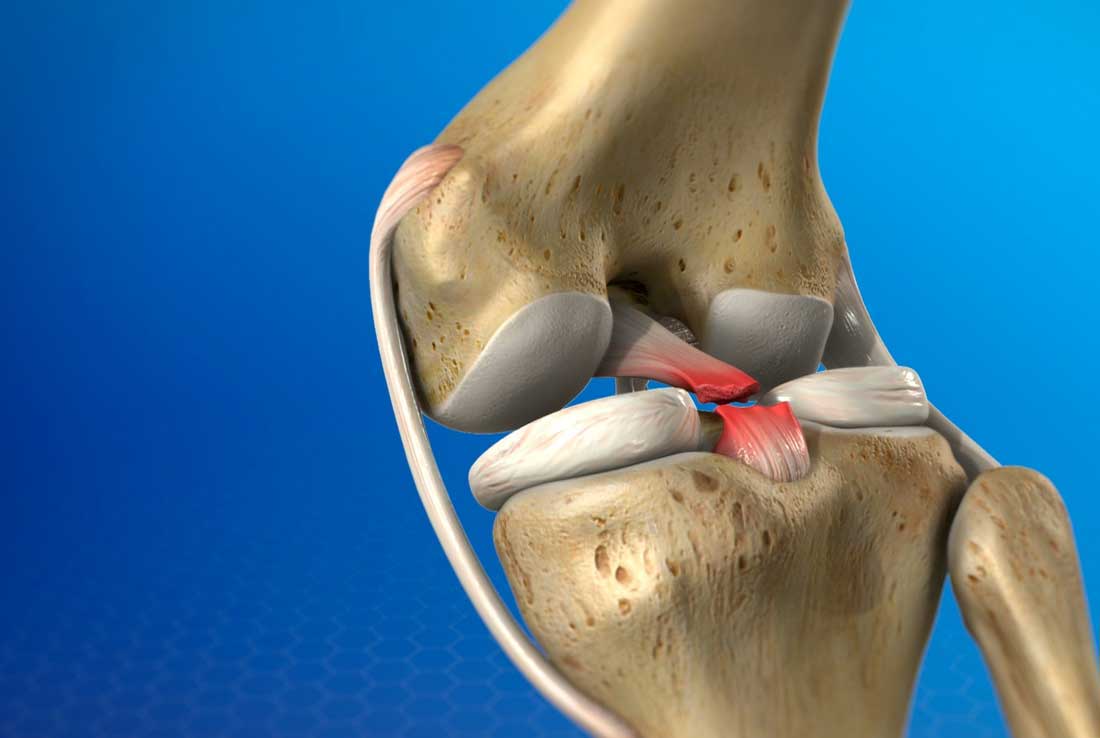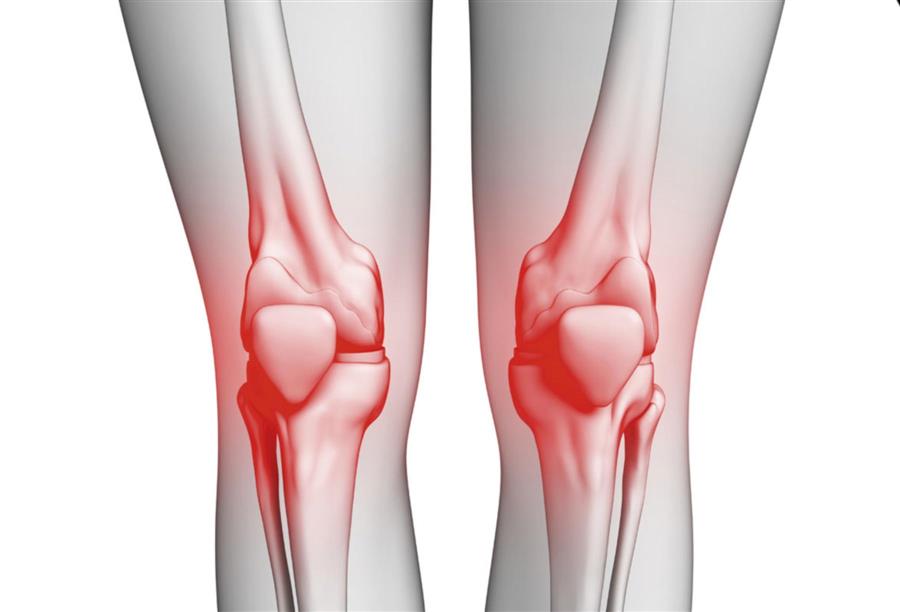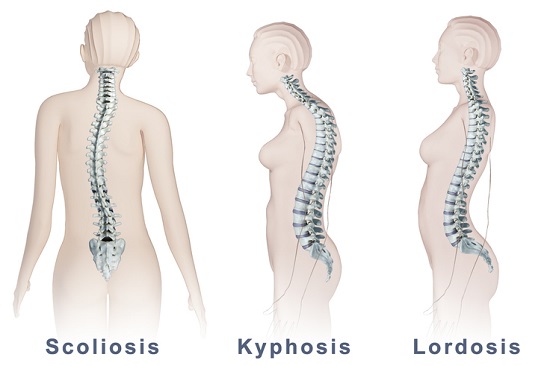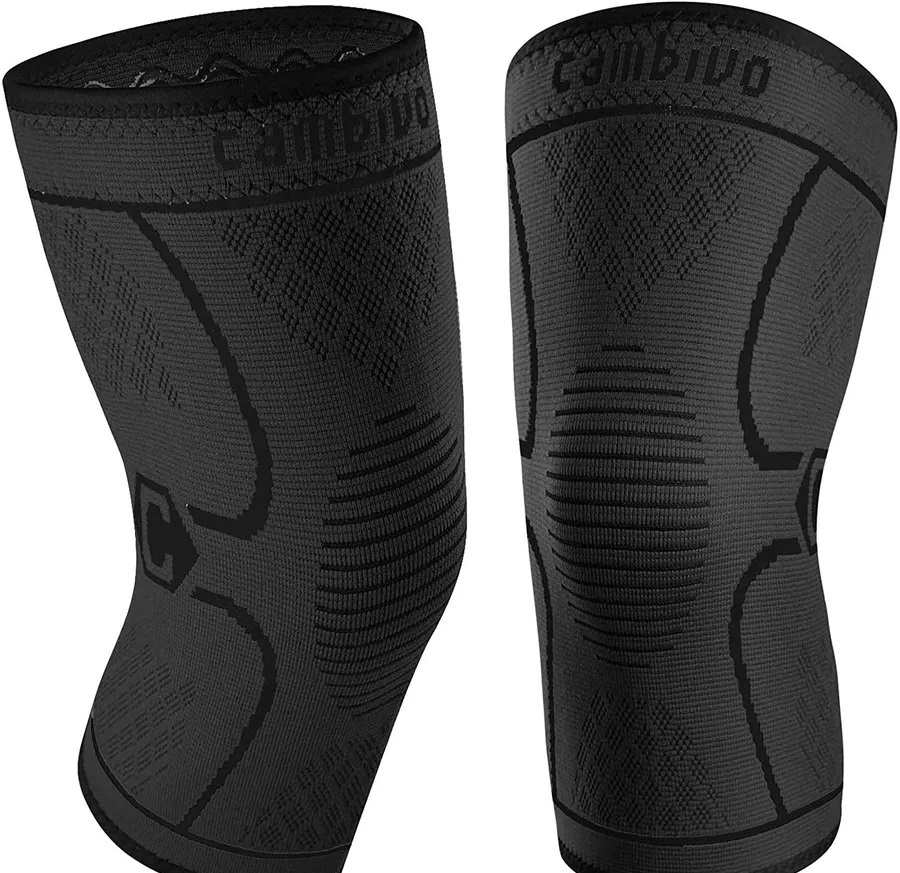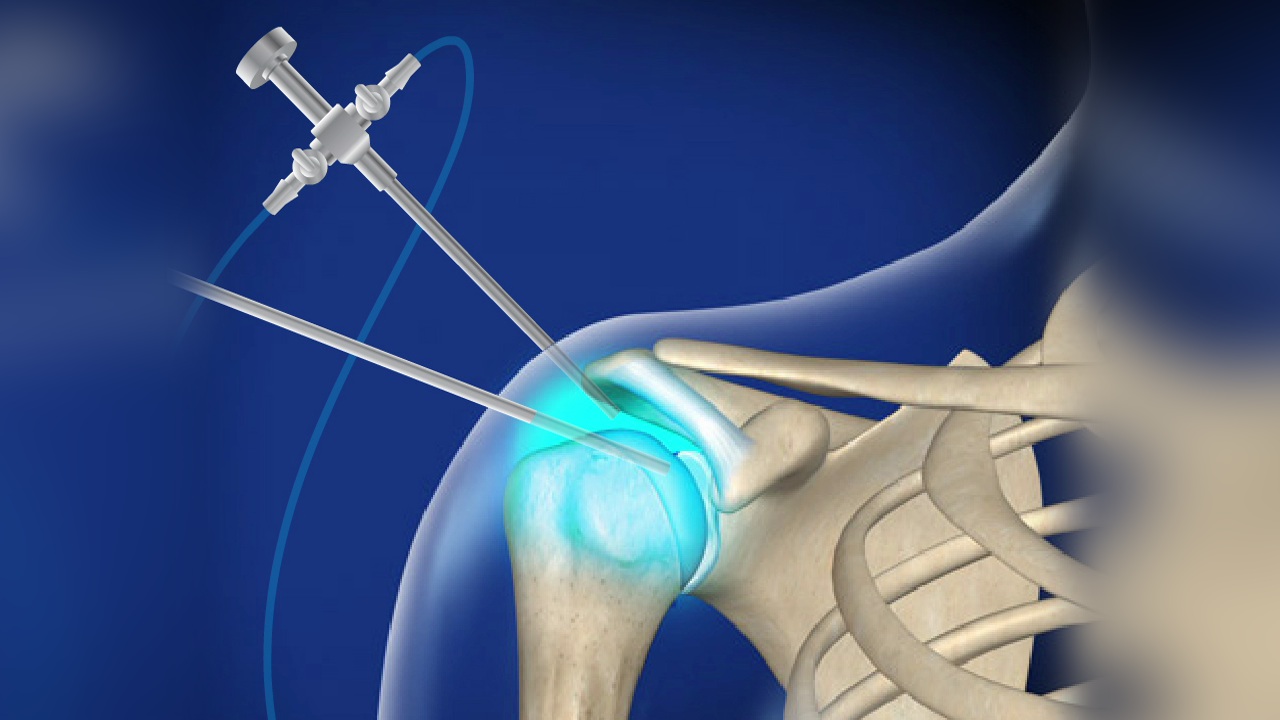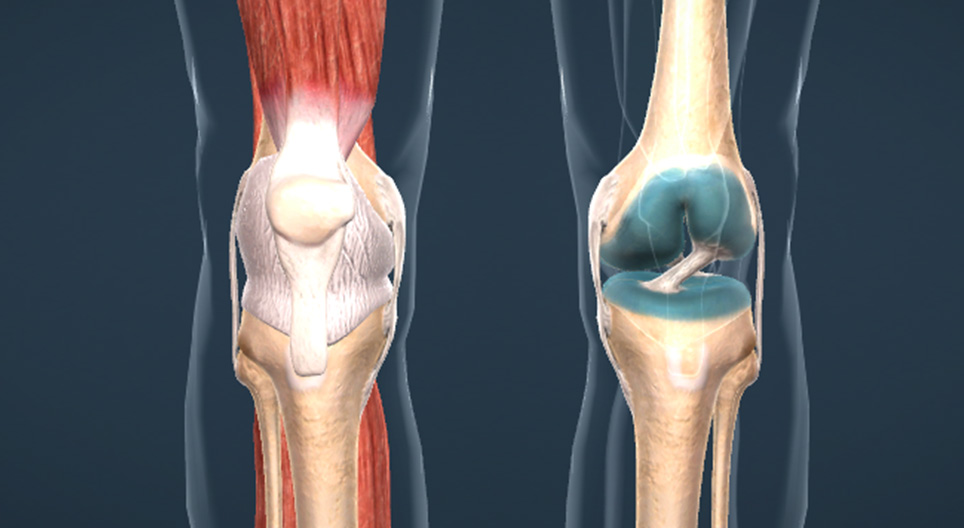Learn about the treatment of shoulder inflammations and how long it takes to recover from them
Shoulder Inflammation Treatment
7 Effective Ways to Treat Shoulder Inflammation
Complete Rest for the Injured Shoulder: When the shoulder is inflamed, complete rest of the affected area is essential to expedite the healing process. Any activity or movement that may worsen the pain and cause further damage to the tendons should be avoided.
- Ice Application: Using ice packs or ice packs wrapped in a cloth on the inflamed shoulder area can have a soothing and pain-relieving effect. Ice is known for its ability to reduce swelling and inflammation.
- Taking Pain Medications: Some oral pain relievers like aspirin and ibuprofen are recommended to alleviate the pain associated with shoulder inflammation. Consultation with a doctor is advised before taking any type of medication. Physical Therapy: Physical therapy may be necessary to treat shoulder inflammation and promote the healing process. This includes massage sessions and targeted exercises that contribute to restoring shoulder flexibility and strengthening damaged tendons.
- Radiation Therapy: If the shoulder does not respond to other treatments, radiation therapy may be necessary. This treatment is used to reduce pain and stimulate the healing process in the inflamed shoulder area.
- Tendon Strengthening Exercises: After improvement and reduction of inflammation, it is important to start performing tendon-strengthening exercises for the affected shoulder. These exercises help enhance flexibility and strength in the tendons and muscles surrounding the shoulder.
- Surgery: In case other treatments fail or the tendons are completely torn, surgery may be necessary to restore the health and normal function of the shoulder. The decision to undergo surgery should be made after a thorough evaluation by a specialized doctor.
It is important to consult a specialized doctor before adopting any type of treatment for shoulder inflammation. The type of treatment depends on the severity of the condition, its cause, and the patient’s medical history.
How long does it take to recover from shoulder tendonitis?
The severity of the injury: The recovery time for shoulder tendonitis depends on the severity of the injury. In moderate cases, patients may need a recovery period ranging from 6 to 8 weeks, while in more severe cases, recovery may take from 6 months to a year.
Treatment: Treatment for shoulder tendonitis focuses on pain relief and reducing inflammation. Applying ice to the affected area for up to 20 minutes several times a day can help reduce swelling. Pain relievers can also be used to alleviate pain.
Diagnosis: Shoulder tendonitis is usually diagnosed through a physical examination. Sometimes, X-ray or other imaging tests may be required to rule out other medical conditions that can cause similar symptoms.
Recovery duration: Most patients recover from shoulder tendonitis within two to four weeks in mild cases. However, cases of chronic inflammation may take two to six months for complete recovery. Tendonitis can become a chronic condition, especially in athletes who continue physical activity despite the injury.
Self-care: Self-care can help speed up the recovery process from shoulder tendonitis. Rest is recommended, along with the use of ice and avoiding painful movements. Exercises specifically designed to strengthen the muscles around the shoulder can also be beneficial for enhancing recovery.
Facilitating factors: Some factors can help accelerate the recovery process from shoulder tendonitis. These factors include stretching and flexibility exercises for tendons, avoiding long-term pain, and practicing strengthening exercises to rebuild tendons. Therapeutic ultrasound and massage can also be used to improve blood circulation and promote healing.
It is important to consult a specialized doctor if symptoms of shoulder tendonitis appear, as they can accurately diagnose the condition and determine the appropriate treatment to speed up recovery.
How to treat shoulder pain at home?
How to Treat Shoulder Pain at Home: 5 Natural Ways
During our daily activities, our body joints are subjected to a lot of stress, and among these joints, the shoulder plays a crucial role. The shoulder can be prone to various problems and injuries such as ligament tears, muscle tears, and tendonitis, all of which can be accompanied by pain.
If you’re suffering from shoulder pain and want to use natural methods to alleviate it at home, here are 5 effective ways to treat shoulder pain:
- Ice Packs: Applying ice packs to the affected shoulder is considered one of the effective and well-known ways to alleviate pain. You can place an ice pack or a cold pack on the shoulder for approximately 15 minutes. This process can be repeated several times a day for the best results.
- Natural Herbs: There are many natural herbs that can be used to treat shoulder pain, such as ginger, turmeric, and garlic. You can incorporate these herbs into your daily meals and beverages or use herbal oils for massaging the painful shoulder.
- Simple Exercises: Some simple exercises can be used to strengthen the muscles around the shoulder and alleviate pain. For example, you can rotate the shoulders downward and hold the position for five seconds, then rotate them outward and hold the position again for five seconds. You can also stand and raise the shoulders upwards and hold the position for five seconds. Regularly practicing these exercises can help reduce pain and improve the shoulder’s condition.
- Heat and Cold: In addition to ice packs, hot compresses can be used to relieve shoulder pain. You can place a bag or a towel soaked in hot water on the shoulder for about 15 minutes. This helps dilate blood vessels and relieve pain.
- Relaxation and Massage: Relaxation and massage are considered two effective methods for relieving shoulder pain and avoiding muscle tension. You can take a warm bath to relax or use massage oils to gently massage the painful shoulder and relieve tension.
These natural methods have proven their effectiveness in treating and alleviating shoulder pain. If the pain persists or symptoms worsen, it is advisable to consult a specialized doctor for an evaluation and consultation regarding the necessary treatment.
Make sure to check medical responses and reliable sources before using any home treatment methods.
Is Massage Beneficial for Shoulder Tendonitis?
Shoulder tendons are vital tissues that help stabilize the muscles and organs surrounding the shoulder, but they can be prone to inflammation and pain that can disrupt shoulder movement and reduce overall body function. One potential method for reducing this inflammation and improving tendon condition is massage. But is massage truly effective? Does it contribute to pain relief and improved shoulder function?
In this article, we will take a look at the benefits of massage in the treatment of shoulder tendonitis and what scientific studies have to say about it.
Reducing Inflammation: Massage with rosemary is believed to work as an anti-rheumatic and antiseptic, and it can help reduce the inflammation associated with shoulder tendonitis. Using 25 grams of rosemary can be incorporated into a massage blend to enhance the massage effects and improve results.
Improving Range of Motion: Massage is considered an effective method for increasing the range of motion in the shoulder by treating and relaxing soft tissues and stretching them. Massage helps relieve tension and increases tissue flexibility, contributing to increased shoulder mobility and pain reduction.
Pain Relief: Massage can contribute to relieving shoulder pain associated with shoulder tendonitis. By stimulating soft tissues and joints, massage can promote blood flow and reduce tissue inflammation, leading to pain relief and improved patient comfort.
Muscle Strengthening: Massage can be part of a physical therapy plan for strengthening the muscles surrounding the shoulder. By activating and stimulating muscle tissues, massage can increase muscle strength and improve their response to shoulder movements, reducing the risk of new injuries and enhancing overall shoulder function.
Muscle Relaxation: Heat therapy is often part of massage sessions, where it is used to relieve tension and relax tight muscles around the shoulder. Thanks to increased blood flow to the affected area and improved tissue circulation, heat can help soothe muscles and improve oxygen flow to damaged tissues.
Before undergoing any massage session to treat shoulder tendonitis, patients should consult a specialized doctor to determine the appropriate treatment techniques and ensure patient safety.
What is the vitamin that strengthens shoulder tendons?
Tendons play a crucial role in shoulder movement and ensuring proper movement and strength. To maintain tendon health and strength, you should consume some essential vitamins that contribute to tendon strength.
In this list, we will highlight important vitamins that enhance the health and strength of shoulder tendons:
Vitamin C: Vitamin C is one of the most important vitamins that contribute to tendon strength. It promotes the production of collagen, which is an essential part of tendons. It strengthens tendons and protects them from injuries. You can obtain vitamin C by consuming citrus fruits such as oranges, lemons, and strawberries.
Vitamin E:
- Contributes to strengthening tendons and combating damage caused by oxidation.
- Protects tendons from inflammation and cell damage.
- Acts as an antioxidant and enhances tendon function.
- Vitamin E can be obtained from foods such as seeds, nuts, and olive oil.
Vitamin D:
- Plays a role in strengthening tendons and bones.
- Promotes the absorption of calcium and phosphorus, both important for bone and tendon strength.
- Prevents vitamin D deficiency, which can lead to tendon inflammation and injuries.
- Vitamin D can be obtained from sunlight and foods such as fatty fish and vitamin-fortified milk.
Vitamin B6:
- Contributes to the production of proteins necessary for the formation and renewal of tendons.
- Maintains tendon strength and enhances flexibility.
- Helps prevent tendon inflammation and reduces joint pain.
- Vitamin B6 can be obtained from foods such as chicken, fish, and potatoes.
Vitamin K:
- Promotes cell renewal and repair of damage in tendons.
- Enhances tendon hardness and protects them from injuries.
- Supports tendon health and helps prevent bruises and bleeding.
- Vitamin K can be obtained from dark leafy green vegetables such as spinach and kale.
Consuming these essential vitamins is an important part of caring for the health and strength of shoulder tendons. Don’t hesitate to consult a doctor or health expert for additional advice on a healthy diet to enhance tendon health.
What Are the Causes of Shoulder Inflammation?
Here is a list of possible causes of shoulder inflammation:
- Shoulder Injuries: Shoulder inflammation can result from direct injuries or damage to the tendons and tissues surrounding the joint. These injuries may be the result of falls, collisions, or intense sports activities.
- Repetitive Activity: Repeated shoulder movements and activities can increase pressure on the tendons, leading to irritation and inflammation. For example, individuals who engage in activities that require frequent use of the shoulder, such as baseball pitchers or workers performing repetitive arm motions, may be at risk.
- Muscle Weakness: When the shoulder muscles are weak, tendons bear a greater burden, increasing the risk of inflammation. Muscle weakness can result from a lack of appropriate physical exercise or prolonged desk work that requires extended periods of sitting without movement.
- Aging: The risk of inflammatory shoulder conditions increases with age. Joints may become less strong and flexible, leading to a higher frequency of tendon tears and inflammation.
- Rheumatoid Arthritis: Rheumatoid arthritis is a common cause of shoulder inflammation. This chronic condition gradually breaks down joint tissues, including the shoulder, causing pain, swelling, and stiffness.
- Overuse Tendonitis: When the shoulder is excessively used without sufficient rest periods, tendons can become irritated and inflamed. This condition is common among individuals who engage in activities requiring continuous repetitive shoulder movements, such as weightlifters.
- Other Diseases: Shoulder inflammation can also result from other conditions like rotator cuff tendonitis, bursitis, and frozen shoulder.
It’s important to discuss your specific symptoms with a healthcare professional to receive an accurate diagnosis and appropriate treatment. Treatment may include anti-inflammatory medications, physical therapy exercises, and surgical intervention if necessary. Remember that good prevention and shoulder health practices can reduce the risk of inflammation.
How to Know If You Have Shoulder Tendonitis?
Shoulder tendonitis is a common condition that many people experience. But how can you tell if you have shoulder tendonitis? Here is a list of some signs that may indicate the presence of shoulder tendonitis:
- Pain: You may experience pain in the shoulder that worsens with movement, especially when raising your arm or reaching overhead. The pain may be sharp or dull and can vary in intensity.
- Tenderness: The affected area of the shoulder may be tender to the touch. Pressing on the tendon or surrounding tissues may elicit discomfort or pain.
- Swelling: Inflammation of the tendon can lead to swelling around the shoulder joint. Swelling may be visible or palpable.
- Stiffness: You might notice stiffness in the shoulder, making it difficult to move your arm freely. This can limit your range of motion.
- Weakness: Shoulder tendonitis can cause weakness in the affected arm. You may find it challenging to perform tasks that require strength and mobility.
- Clicking or Popping: Some individuals with shoulder tendonitis report hearing clicking or popping sounds when they move their shoulder. This can be due to the tendon rubbing against other structures.
- Pain at Night: Tendonitis pain may worsen at night, affecting your sleep patterns. Resting on the affected shoulder can be uncomfortable.
- Gradual Onset: Symptoms of shoulder tendonitis often develop gradually over time, especially if they result from repetitive movements or overuse.
If you are experiencing these symptoms, it’s advisable to consult a healthcare professional for a proper diagnosis and treatment plan. Early intervention can help manage shoulder tendonitis and prevent it from worsening. Your healthcare provider may recommend rest, physical therapy, anti-inflammatory medications, or other interventions based on the severity of your condition.
Shoulder Pain: If you experience increasing shoulder pain that becomes difficult to move, this could be a sign of inflammation in the shoulder tendons. The pain may also radiate to the chest and back bones.
Tenderness: Pain may be present when touching the shoulder area. If you feel severe pain when touching your shoulder, this could be an indication of tendon inflammation.
Pain with Movement: If you feel pain when moving the affected arm, it could be a sign of inflammation in the shoulder tendons. The pain may worsen with repetitive arm movements or in certain positions.
Pain During Sports Activities: If you experience pain while engaging in sports activities that involve using the shoulder, such as throwing or serving a tennis ball, this could indicate shoulder tendon inflammation.
If you have these symptoms, it’s advisable to consult a specialist doctor for a proper diagnosis and guidance toward appropriate treatment. The doctor can conduct the necessary examination and take a medical history to better understand your symptoms.
Do not ignore shoulder pain, as untreated shoulder tendon inflammation can lead to more serious long-term problems. Consult a specialist doctor for an accurate diagnosis and appropriate treatment for your condition.
Can Vitamin D Deficiency Cause Shoulder Pain?
Four Reasons Vitamin D Deficiency May Cause Shoulder Pain
Shoulder pain can be bothersome and impact your daily life. One possible reason for this pain is a deficiency in vitamin D. Vitamin D plays a crucial role in bone and muscle health and is necessary for calcium absorption. However, many people lack this essential vitamin. Here are four reasons why a vitamin D deficiency may cause shoulder pain:
- Muscle Weakness: A vitamin D deficiency can lead to overall muscle weakness, including the muscles surrounding the shoulder. Muscle weakness can result in instability and muscle spasms, potentially causing pain and stiffness in the shoulder.
- Joint Inflammation: Vitamin D deficiency increases the risk of developing joint inflammation, including shoulder joint inflammation. A lack of vitamin D hinders the body’s ability to fight joint inflammation and strengthen the bones and surrounding tissues.
- Nervous System Impact: Vitamin D regulates the functions of the nervous system, including nerve signals that transmit pain. A deficiency in vitamin D may disrupt the nervous system’s balance, leading to increased pain in the shoulder and other parts of the body.
- Bone Weakness: Vitamin D deficiency is associated with bone weakness and an increased risk of fractures and bone deterioration. If your bones are weak, any activity that puts pressure on the shoulder can cause pain and strain.
If you suspect a vitamin D deficiency may be contributing to your shoulder pain, consult a healthcare professional for a vitamin D assessment and guidance on supplementation if necessary. Correcting a vitamin D deficiency can help improve muscle and bone health, potentially alleviating shoulder pain.
What Can You Do:
If you are experiencing shoulder pain and suspect that a vitamin D deficiency may be the cause, here are some actions you can take:
- Consume foods rich in vitamin D, such as fatty fish like salmon and sardines, eggs, dairy products, and fortified foods.
- Get short daily exposure to sunlight to increase the production of vitamin D in your body.
- Consult a doctor to determine if you need vitamin D supplements.
Remember to seek medical attention if shoulder pain persists for more than two weeks or worsens, affecting your shoulder’s mobility. There may be other causes of shoulder pain that require a medical diagnosis and treatment.
Is Shoulder Tendonitis Serious?
Shoulder tendonitis is a common sports injury that can result from overuse of the tendons or sudden injuries. It can cause a lot of pain, tenderness upon touch, restrict shoulder movement, and lead to discomfort. So, is this type of inflammation considered serious? In this article, we will discuss important information regarding the seriousness of shoulder tendonitis.
What Is the Severity of Shoulder Tendonitis?
Although shoulder tendonitis is not typically a serious illness, it can cause a significant amount of pain and discomfort. In cases of acute tendonitis, proper medical treatment may be required to alleviate pain and restore normal shoulder movement. In some cases, the following therapeutic steps may be recommended:
Rest: It is advisable to avoid straining the affected shoulder and reduce activities that exacerbate the pain.
Ice: Applying ice to the affected area can help reduce inflammation and pain.
Pain Relievers: Your doctor may prescribe pain-relieving medications such as aspirin or ibuprofen.
Physical Therapy: Physical therapy can be effective in strengthening the muscles surrounding the shoulder and increasing flexibility.
In some rare cases, surgery may be recommended if improvement is not achieved with other treatments. Consult with a specialist doctor to evaluate your condition and guide you toward the best treatment steps.
When Should You Consult a Doctor?
While shoulder tendonitis is not usually serious, there are cases that require immediate medical consultation, including:
- Partial or complete tears of the rotator cuff tendons or the biceps tendon.
- Lack of improvement in symptoms with standard home treatments.
- The appearance of severe redness, swelling, and an increase in shoulder temperature.
- Difficulty in movement or complete loss of range of motion in the shoulder.
In the event of any of these symptoms, it is advisable to seek immediate medical attention from a specialist doctor for an accurate diagnosis and appropriate treatment.
Precautions and Prevention Tips
To reduce the risk of shoulder tendonitis, it is recommended to follow some simple precautions and tips, including:
- Avoid overloading and stressing the shoulder with heavy weights.
- Perform exercises to strengthen the muscles surrounding the shoulder and increase flexibility.
- Warm-up and stretch before engaging in sports or strenuous physical activities.
- Stop engaging in physical activity in case of injury or shoulder pain.
If you experience symptoms such as shoulder pain or restricted shoulder movement, it is important to consult a specialist doctor for diagnosis and determination of appropriate treatment. Listen to your body and do not ignore the symptoms, as shoulder tendonitis may be the underlying cause.
Can Hot Water Treat Shoulder Tendonitis?
Shoulder tendonitis is a common issue that many people face, and hot compresses are one of the methods that may help alleviate pain and inflammation associated with this condition. So, does hot water truly treat shoulder tendonitis?
In the following, we will provide you with a list of potential benefits of using hot water in the treatment of shoulder tendonitis:
Pain Relief: Hot water is considered one of the traditional remedies used by people to alleviate muscle and tendon pain. The heat from hot water helps dilate blood vessels and improve blood flow to the affected area, which can help relieve pain.
Improved Blood Circulation: When a hot water bag is placed on the inflamed shoulder area, the emitted heat can improve blood circulation. This may help increase the delivery of oxygen and nutrients to the affected tissues, promoting healing.
Reduced Inflammation: Thanks to the high temperature, hot water can help reduce the inflammation associated with shoulder tendonitis. If the hot compress is applied to the shoulder for a period of time, inflammation and swelling may significantly decrease.
However, there are some precautions to consider when using hot water for treating shoulder tendonitis:
Balanced Heating: Care should be taken to ensure that the water is not too hot to avoid the risk of skin burns. It is advisable to determine a temperature that is acceptable and suitable for application to the sensitive area.
Avoid Use in Case of Infection: Hot water should be avoided if there are signs of infection in the tendonitis area, as the use of heat may increase the risk of infection spreading.
Monitoring Time: It is important not to use hot water for an excessively long period. It is recommended not to exceed the recommended duration of continuous application to the affected skin, which is typically around 20 minutes.
It should be noted that if the symptoms of tendonitis do not improve or worsen within 48 hours of using hot water, it is advisable to consult a doctor for a thorough evaluation and professional advice.
Using hot water with caution and following proper guidelines, hot compresses may be effective in relieving pain and soothing inflammation in cases of shoulder tendonitis. However, it is always recommended to consult a doctor before applying any self-treatment method to receive the necessary and safe guidance.
Can Cupping Therapy Treat Shoulder Tendonitis?
Shoulder tendonitis is a health issue that many people suffer from, often accompanied by severe pain and limited mobility. Some individuals may explore cupping therapy as a treatment method. Does cupping therapy really help in treating shoulder tendonitis?
Here, we provide you with a list outlining some important points about cupping therapy for shoulder tendonitis:
- Medical History: Cupping therapy has been practiced in various ancient cultures and societies and was used by many physicians and healers to treat various ailments. Some accounts suggest that the Prophet Muhammad, peace be upon him, referred to the benefits of cupping in healing diseases, giving it a positive religious reputation in the Islamic world.
- Treatment Method: Special cupping instruments are placed on the affected shoulder area, where cupping works to collect stagnant and painful blood in this area and eliminate it. Cupping also stimulates blood circulation and the immune system, helping to heal tendon inflammations and reduce pain.
- Traditional Treatments: Some individuals apply herbal remedies and cold compresses as part of their shoulder tendonitis treatment. Cold compresses are used to alleviate pain and improve blood circulation in the inflamed shoulder area. Cleansing and soothing herbs like cabbage may be used to relieve pain and stimulate the healing process.
- Scientific Evidence: There is currently limited major scientific research that definitively proves the effectiveness of cupping therapy in treating shoulder tendonitis. Therefore, it is important for individuals to consult their doctor before practicing this treatment and to rely on scientifically approved treatments for shoulder tendonitis.
It can be said that cupping therapy may help alleviate pain and stimulate blood circulation in the shoulder tendonitis area, and some individuals may experience improvement in their condition after cupping treatment. However, it is essential to consult a doctor before applying any cupping therapy and to rely on scientifically approved treatments for shoulder tendonitis.




